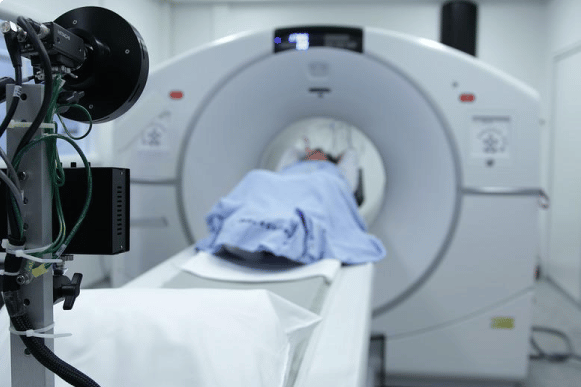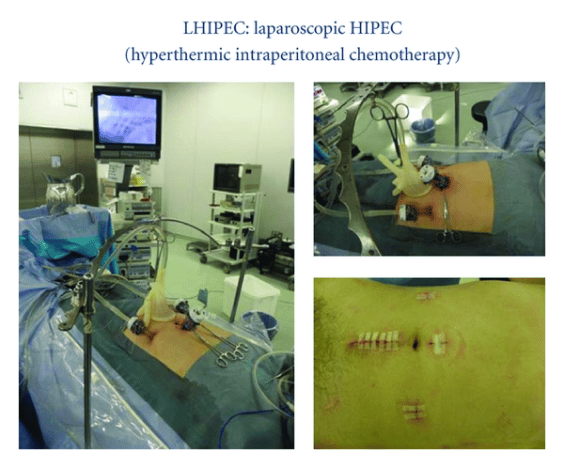Stage 2 Mesothelioma
Stage 2 mesothelioma is considered to be early-stage cancer. The prognosis is fair, and treatment options are available for patients with stage 2 cancer.
Home » Leading National Mesothelioma Law Firm » Mesothelioma Cancer » Mesothelioma Stages » Stage 2 Mesothelioma
In general, stage 2 mesothelioma is still considered to be an early stage cancer, and many patients are candidates for treatments that can significantly extend their lifespan.
What Is Stage 2 Mesothelioma?
Overall, cancer is most commonly described using a system of four stages. Stage 1 is the earliest stage, while stage 4 is the most advanced. Various factors are taken into account in order to determine a cancer’s stage, including the size and extent of the tumor and whether it has spread to local lymph nodes and/or to more distant parts of the body.
In stage 2, the cancer has just begun to spread but is still relatively contained within a local area. There is no metastasis or spread of cancer cells to distant parts of the body. In some cases, the cancer may have spread to lymph nodes in the area but has not spread to more distant lymph nodes.
Stage 2 Pleural Mesothelioma
There is a formally defined staging system for pleural mesothelioma, which was most recently updated by the International Association for the Study of Lung Cancer in 2016. The official criteria for stage 2 malignant pleural mesothelioma include the following features:
- There is spread to lymph nodes on the same side of the chest only.
- The tumor may remain localized to the pleura, or it may have spread to the lung tissue and/or the diaphragm (the large flat muscle of breathing) on the same side of the body.
If there is no spread to lymph nodes, then the patient is in stage 1. If the cancer has spread to lymph nodes on the opposite side of the body, or spread to local organs beyond the lung and/or diaphragm, then the patient is in stage 3. Those with spread to more distant parts of the body, or with very extensive local spread, are in stage 4.
Stage 2 Peritoneal Mesothelioma
There is no official system for determining the stage of peritoneal mesothelioma. One system that’s becoming more widely accepted is called the modified TNM system. This system is somewhat unusual because it uses only three stages instead of four.
Under the modified TNM system, the peritoneal cancer index (PCI) is used to determine the stage of the cancer. To determine the PCI, the abdomen is divided into 13 areas, and the amount of cancer tissue present in each area is scored from 0 to 3. The numbers are added together to determine a total PCI of up to 39. Under this system, stage 2 peritoneal mesothelioma includes:
- An intermediate PCI, from 11 to 30
- No spread to lymph nodes, nor to more distant organs
Although the modified TNM system is becoming more widely used, it has not been officially accepted as the system for staging peritoneal mesothelioma. Some doctors may use other ways of describing the stage of peritoneal mesothelioma. Stage 2 could be used to describe a tumor that has spread within the abdominal cavity but has not spread to lymph nodes, or one that has spread to local lymph nodes only.
Diagnosis of Stage 2 Mesothelioma
The process of diagnosing mesothelioma cancer also gives doctors information that they can use to determine the stage of the cancer. The stage determined by this information is known as the clinical stage, sometimes designated with the letter c before the stage number.
Tests that can be useful in determining that a particular case of mesothelioma is in clinical stage 2 may include:
Imaging studies, such as:
- Computerized tomography scans (CT scans) and/or magnetic resonance imaging (MRI). These scans allow doctors to get detailed images of various parts of the body in order to look for tumors.
- Positron emission tomography scan (PET scan). This uses a radioactive tracer to look for cancer cells around the body.
The biopsy. Pathologists look for particular features in a biopsy sample to help determine the stage of the cancer. For example, if cancer cells have penetrated particular membranes, this is a sign that the cancer may have spread to other parts of the body. Biopsies of lymph nodes also show whether the cancer has spread there.

Although the clinical stage is determined based on these factors, information found during a surgical procedure can sometimes change the stage. The stage as determined by this method is known as the pathological stage. For example, a patient may appear to be in stage 1 before surgery. During the procedure, samples of lymph nodes will be taken and sent to a pathologist for examination. If cancer cells are found in one or more of these lymph nodes, then the stage may be increased to stage 2 or beyond.
When the pathological stage is more advanced than the clinical stage, this is known as upstaging. Upstaging has been found to occur in up to 80 percent of cases of early-stage pleural mesothelioma.
Stage 2 Mesothelioma Life Expectancy
Life expectancy for patients with stage 2 pleural mesothelioma has been reported in different studies to be between 19 months and 22 months.
In general, peritoneal mesothelioma tends to have a better prognosis than pleural mesothelioma. The specifics of the prognosis depend on how the stage is determined. If the modified TNM system is used, then patients in stage 2 have been found to have a five-year survival rate of 53 percent. This is largely due to the use of a highly effective treatment modality known as CRS-HIPEC, which uses a combination of surgery and chemotherapy.

Treatment for Stage 2 Mesothelioma
In general, stage two is still considered to be an early stage of cancer. Although there is spread to lymph nodes, this is still relatively contained to only those lymph nodes in the local area, which can be removed as part of a surgical procedure. In addition, the tumor itself is not so extensive that it cannot be removed by surgery. Because of these factors, stage 2 mesothelioma is often considered resectable, meaning that patients are eligible for surgery that’s intended to remove as much cancer as possible and extend life.
The stage of the cancer is not the only factor used in determining the specific treatment plan for an individual patient. Other aspects of the cancer, such as cell type, the patient’s age and overall medical condition and patient preference are all important factors. Your oncologist will discuss your treatment plan with you, including what he or she recommends in your specific case.
Stage 2 Pleural Mesothelioma Treatment Options
Most commonly, stage 2 pleural mesothelioma is treated using a multimodality approach, which combines surgery with other treatment options. Some of the options that may be part of the treatment plan include:
Tumor-removing surgery. This may include extrapleural pneumonectomy (EPP) or pleurectomy/decortication (P/D). Either of these procedures removes as much visible tumor tissue as possible, sometimes along with other tissues in the area. Lymph nodes can also be removed as part of the procedure; for patients in stage 2, removing lymph nodes is necessary in order to eliminate as much of the cancer as possible.
- Chemotherapy. This is commonly used along with surgery in one of the following ways:
- Intraoperative chemotherapy, also known as hyperthermic intrathoracic chemotherapy (HITHOC). This method is used during tumor-removing surgery. After removing as much cancer tissue as possible, the surgeon infuses a warmed solution of chemotherapy drugs into the thoracic cavity. This is left in place for a period of time, and then washed out before the incisions are closed. HITHOC is a newer treatment method but is similar to the HIPEC method that has been used very successfully in peritoneal mesothelioma, as shown in studies.
- Adjuvant chemotherapy, in which systemic chemotherapy drugs are given after surgery in order to target any cancer cells that were not removed during the procedure.
- Neoadjuvant chemotherapy, in which systemic chemotherapy drugs are given before surgery in order to shrink the tumor and make it easier to remove.
Radiation therapy. This is most commonly given after surgery to reduce the chances that the tumor will grow back.
If these treatments are not effective, then other options may be considered, such as systemic chemotherapy, immunotherapy and/or tumor treating fields. The patient may also be a candidate for a clinical trial, which is a research study of a new type of treatment.
Stage 2 Peritoneal Mesothelioma Treatment Options
If peritoneal mesothelioma has been diagnosed as stage 2 based on the modified TNM system, then there is no spread to lymph nodes or more distant organs, and the patient is likely to be eligible for a highly effective surgical procedure known as CRS-HIPEC. This procedure uses a combination of different modalities:

Cytoreductive surgery (CRS). In this procedure, the surgeon removes as much visible tumor tissue as possible from the abdominal cavity. This generally involves removing large parts of the peritoneum itself, including the greater omentum, the fat-containing fold of peritoneum at the front of the abdomen. Other organs or parts of organs may also be removed, including the gallbladder, spleen, bladder and/or parts of the intestine. The specifics of tissue removal depend on where tumor tissue is found.
Hyperthermic intraperitoneal chemotherapy (HIPEC). After the removal of tumor tissue, a warm solution of chemotherapy drugs is infused into the abdominal cavity. This is left in place for a period of time and then washed out. The surgical incisions are then closed.
CRS-HIPEC is very effective in treating peritoneal mesothelioma. The specific surgical technique can have an impact on patient outcomes, so choosing a surgeon with extensive experience in performing this specific surgery is important. Because peritoneal mesothelioma is rare, many surgeons have not performed it very often.
If this treatment modality is not effective, then alternative treatment options may be used. Systemic chemotherapy is generally the primary life-extending treatment that can be used in this case. There are also palliative care options, which are intended to address the quality of life rather than to extend life.
For mesothelioma patients who don’t have good results from traditional treatments, participating in a clinical trial may also be a possibility. A clinical trial is a research study designed to study the effects of a new treatment option. Although this can offer patients the possibility of getting access to a novel type of treatment that may extend life, there are important trade-offs to consider. If you’re interested in considering this option, you should discuss it with your oncologist. He or she can help you weigh the pros and cons of being a part of a clinical trial and can also help you locate trials for which you may be eligible.
